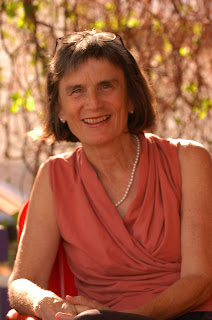Tinkers: The Book that Refused to Disappear
 |
| the book that refused to disappear |
Everything is made to perish; the wonder of anything at all is that it has not already done so. No, he thought. The wonder of anything is that it was made in the first place. What persists beyond this cataclysm of making and unmaking?
—Tinkers, p119-120, by Paul Harding
It’s old news--Paul Harding’s TINKERS won this year’s Pulitzer Prize for Fiction. Read of course the New York Times article linked above but more importantly read Pat Holt’s UNCENSORED article here for the true skinny about its publication, about its publisher Bellevue Literary Press and about how Lise Solomon, an excited independent sales representative, lit the fire of excitement about the novel.
Tinkers is a wonderful book, full of mystery about the insubstantial nature of the world in which we live. It all looks so solid, so real, but it slips away into the ether. A man, George Washington Crosby, is dying. His house that he built with his own hands and even the skies are literally collapsing in on him. He watches from the hospital bed that has been placed like a coffin in the living room of his home as all these successive worlds tumble in on his mind and heart. His wife, sister, children and grandchildren take turns witnessing the last days, hours and seconds tick away. And through his imagination he opens up his childhood to us, a childhood that witnesses the sufferings of his own father, who suffered from epilepsy, full of equal mystery and suffering. It’s a fine novel. A novella really. And it certainly deserves the Pulitzer.
But we want to reiterate and emphasize that the book was published by Bellevue Literary Press, by one of our independent publishing colleagues. And they published it in trade paperback, not cloth. The New York Times Book Review section didn’t deem it worthy of their attention until it won the Pulitzer.
Ha! The book broke all sorts of publishing rules and assumptions.
Like Cinco Puntos, Bellevue is distributed to the trade by Consortium Book Sales and Distribution. The book got to Bellevue after Harding had exhausted all of the normal big city avenues. Agents turned him down, big publishers turned him down. Probably thought the novel too old fashioned, too slow-paced--a man dying, he’s an horologist for God’s sake. Their assumption: readers these days want blood and guts, some sex and foul language, they want the novel moving along quickly. Not Bellevue. They believed in the novel. And they convinced sales representatives to believe in the novel. And one of those sales reps, Lise Solomon of Karel/Dutton on the West Coast, really began promoting it. Lise began pushing the snowball downhill. Independent bookstores caught the fever, they started making sure book buyers knew of its importance, they got it into the hands of industry people in…well, in the Big City, beneath the bright lights.
The rest is history. It’s a feel good story about the importance of independent publishing and independent bookselling in the country, the importance of these book people—readers all—who care fiercely about our literature, our culture, our intellectual life.
But we want to reiterate and emphasize that the book was published by Bellevue Literary Press, by one of our independent publishing colleagues. And they published it in trade paperback, not cloth. The New York Times Book Review section didn’t deem it worthy of their attention until it won the Pulitzer.
Ha! The book broke all sorts of publishing rules and assumptions.
Like Cinco Puntos, Bellevue is distributed to the trade by Consortium Book Sales and Distribution. The book got to Bellevue after Harding had exhausted all of the normal big city avenues. Agents turned him down, big publishers turned him down. Probably thought the novel too old fashioned, too slow-paced--a man dying, he’s an horologist for God’s sake. Their assumption: readers these days want blood and guts, some sex and foul language, they want the novel moving along quickly. Not Bellevue. They believed in the novel. And they convinced sales representatives to believe in the novel. And one of those sales reps, Lise Solomon of Karel/Dutton on the West Coast, really began promoting it. Lise began pushing the snowball downhill. Independent bookstores caught the fever, they started making sure book buyers knew of its importance, they got it into the hands of industry people in…well, in the Big City, beneath the bright lights.
The rest is history. It’s a feel good story about the importance of independent publishing and independent bookselling in the country, the importance of these book people—readers all—who care fiercely about our literature, our culture, our intellectual life.


Comments